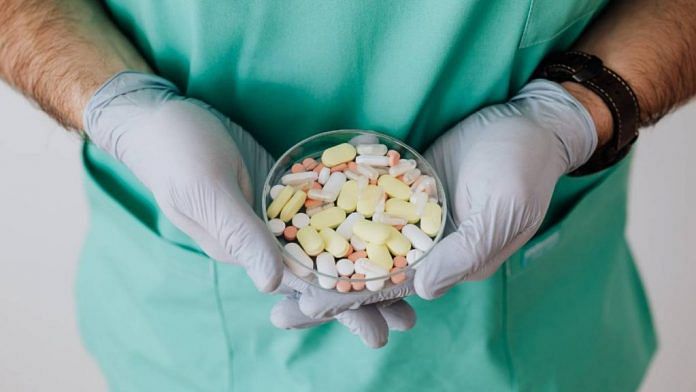The Covid pandemic has shown us that the delicate interconnections between animal, environmental and human ecosystems will continue to be tested by climate change. SARS-CoV-2 – the virus responsible for this pandemic originates from animals. While this zoonotic virus had pandemic potential, zoonoses like severe acute respiratory syndrome (SARS), the Middle East respiratory syndrome (MERS), and Ebola, among others, have had a significant bearing on public health in the past. Further, the degradation of the health of the three ecosystems will contribute to the spread and emergence of new pandemics. But there is another health crisis we should be aware of.
Dubbed as the silent pandemic, antimicrobial resistance (AMR) can induce up to 10 million global deaths every year by 2050 and force 28 million people into poverty. Further, our health systems will be overburdened because drugs will lose their efficacy due to the buildup of AMR. The mitigation of AMR is underpinned by protecting the health of the animal, environment, and human ecosystems. Seizing the importance of the issue, global and national action plans on AMR have been drawn out. Nestled in the One-Health approach, the action plans provide a framework to arrest AMR across ecosystems.
Antibiotics in our rivers
The overuse of antimicrobials like antibiotics in human medicine and the improper usage of antibiotics in agriculture, aquaculture, livestock, and poultry have been addressed through multi-sectoral approaches. In India, there has been an emphasis on improving antimicrobial stewardship practices (AMSP) in hospitals, expanding the coverage of healthcare sites reporting data on AMR, bettering the capacity of healthcare professionals, and focusing on R&D for the discovery of new therapeutics. To address the misuse of antibiotics in aquaculture, livestock, and poultry, stringent measures like the ban on colistin, an antibiotic medication, and regulating the maximum permissible limit of antibiotics and veterinary drugs have been taken.
However, strategies to tackle environmental antimicrobial resistance have been limited. This is worrying because the progress in animal and human verticals of AMR can be eroded due to the interlinkages between the three ecosystems. It is critical to have regulations limiting antibiotic concentration in hospital wastewater and effluents from pharmaceutical manufacturing units. Central wastewater treatment for hospital effluents in India is uncommon and reportedly less than 45 per cent of hospitals have treatment facilities. Additionally, poor hygiene standards and lack of access to clean drinking water and sanitation further facilitate the spread and emergence of AMR.
In the absence of standards, the high concentration of antibiotics in pharmaceutical effluents discharged into water bodies poses a grave health threat to animals and humans. Of late, several instances of pharmaceutical pollution across states have been reported, the recent one being of the Baddi pharma hub in Himachal Pradesh and antibiotic pollution of the Sirsa river. The heavy traces of antibiotics ultimately infiltrate the animal and human ecosystems through the food chain and silently drive up AMR.
Given the Indian pharmaceutical industry’s spread across the corners of India and its expansionary outlook, the industry and the government must deliberate and formulate standards that limit the discharge of antibiotic residue into the environment. In the ongoing Baddi pharmaceutical pollution case, the Himachal Pradesh Pollution Control Board (HPPCB) has requested support from the Ministry of Environment, Forests and Climate Change (MoEFCC) to formulate standards governing antibiotic concentrations in pharmaceutical effluents. The Central Pollution Control Board (CPCB) and the MoEFCC must work with the state pollution control boards as the central bodies have better capacities and resources.
Also read: Stop harming yourself with cold and flu antibiotics
How to arrest AMR
Untreated hospital wastewater is a heady cocktail of antibiotics and other drugs and, if untreated, can be a hotspot for drug-resistant pathogens known as superbugs. The blaNDM-1 superbug, more commonly known as the New Delhi superbug, was found in the wastewater outfalls of hospitals and sewer drains of the country’s capital. As expected, the concentration of the superbug was much higher in the wastewater outfalls of clinical settings. Subsequently, the superbug has spread to over 70 countries, including the pristine Arctic Circle. Such instances call for pronounced wastewater surveillance along with AMSP to prevent hospitals from turning into hotbeds of AMR.
Improved WASH (water, sanitation, and hygiene) standards are the third area of concern for environmental AMR. Poor sanitation and hygiene coupled with unclean drinking water expedite the natural mutation process in microbes, thereby speeding AMR. A recent study by the University of Birmingham has revealed that poor WASH standards contribute to the uptick of AMR in countries like Bangladesh. While the sanitation and hygiene parameters have drastically improved due to the Swachh Bharat Mission in India, the coverage of the ambitious Har Ghar Nal Se Jal scheme can play a pivotal role in arresting environmental AMR.
For the One-Health approach to dampen AMR, it is pertinent that the policy framework is detached from a siloed approach, and implementation of these policies is emphasised. To facilitate the convergence and implementation of multi-sectoral policies, an AMR regulatory authority must be instituted. Further, separation of veterinary drugs from human medicine, regulation of animal food by a competent authority, and discouraging the sale of over-the-counter medication will ultimately protect against AMR in all three ecosystems. However, the administrative efforts will fall short unless supported by industry, civil society organisations, and the public.
Prof. Nirmal Kumar Ganguly is a microbiologist and the Former Director-General of the Indian Council of Medical Research (ICMR). Views are personal.
(Edited by Neera Majumdar)



